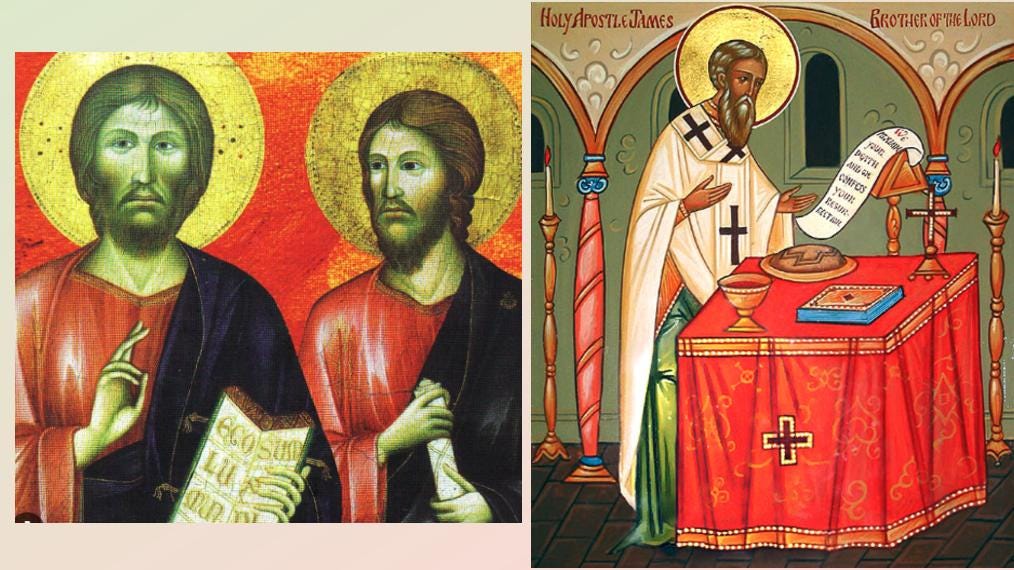The Beginning of the Letter of James
James 1:1-11 - Monday, Feb 12, 2024 - 6th Week in Ordinary Time
In the New Testament, three figures bear the name "Jacob (James)." The first was a son of Zebedee and the brother of the apostle John, traditionally known as James the Greater (Matt 10:2; Mark 1:19-20). He was beheaded around AD 44 by Herod Agrippa I (Acts 12:1-2). The second James was the son of Alphaeus, also one of the Twelve, traditionally referred to as James the Lesser (Mark 3:18; Luke 6:15; Acts 1:13). The New Testament provides no further information about him. The third James, known as James the Just, became a major leader of the church in Jerusalem. Paul refers to him as "the brother of the Lord" and a "pillar" of the Jerusalem church (Gal 1:19; 2:9). Eusebius identifies him as the first "bishop of Jerusalem." It is believed that James the Just is the author of the Letter of James.
The central theme of this letter is faith and works. According to James, saving faith does not consist merely of believing in the existence of God; it must be "completed by works" (2:22) that demonstrate the new life in Christ. Faith without such works, often referred to as "faith alone" (2:24), does not justify but is considered "dead" and "useless" (2, 20; cf. Gal 5:6). James emphasizes the relevance of moral behaviour to salvation. He urges us to care for the poor, particularly orphans and widows (1:27), and warns against the pursuit of wealth, favouring the rich, and succumbing to greed and the love of the world (2:5; 4:1-5; 5:1-6).
The letter is addressed to the "twelve tribes in the dispersion" (1:1), referring to those Jews who had embraced Jesus as the Messiah and had been scattered outside of Palestine. These early Christians faced numerous adversities from Jews, pagans, and Roman authorities. Despite the challenges faced by these early Christians, James encourages them to accept their experiences with joy and perseverance. He poses the question: Can we do the same in our current context, where Christians remain the most persecuted religious group worldwide?
Moving on, James addresses a request for wisdom, evoking the famous prayer of Solomon: "Give your servant, therefore, an understanding mind to govern your people, that I may discern between good and evil" (1 Kings 3:9). In our culture of instant gratification, we often expect our prayers to be answered immediately. However, James reminds us to hold onto the conviction that our Heavenly Father knows what we need and will provide it in His way and in His time.
Finally, in this portion of the letter, James delves into the topic of the exaltation of the poor and the humiliation of the rich. He draws upon biblical tradition and the teachings of Jesus. We are all familiar with Jesus' parables of the Rich Fool and the Rich Man and Lazarus, which underscore the importance of humility and the dangers of pursuing worldly wealth. We are also familiar with the early Christian hymn about Christ's humility that Paul included in his letter to the Philippians. Jesus' submission to God's will and his acceptance of the cross ultimately led to his exaltation above all powers and authorities, being given a name above every other name (Phil 2:5-11).
James offers profound insights into the nature of faith, the importance of moral action, the endurance of trials, and the pursuit of divine wisdom. Let us try to apply these insights to our life of faith.




